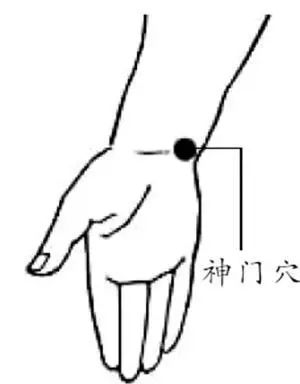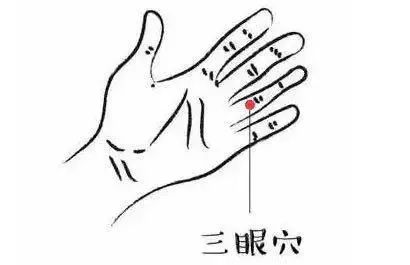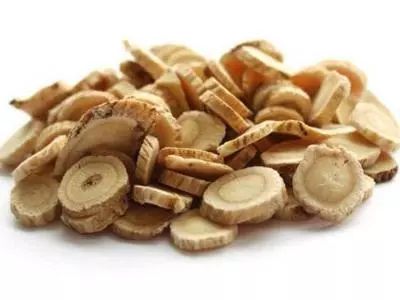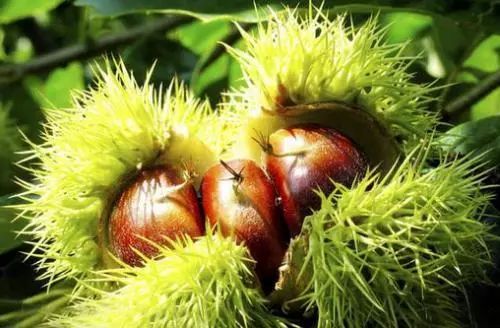
Having abundant jing (essence), qi (vital energy), and shen (spirit) is a sign of good health. However, qi deficiency can lead to fatigue and weakness, affecting the function of related organs and causing various health issues. The manifestations of qi deficiency in the five organs are distinct, and appropriate adjustments are necessary to replenish their energy.

1. Liver Qi Deficiency
The liver opens to the eyes, and those with liver qi deficiency may experience dizziness, blurred vision, and a lack of vitality in their gaze. The liver is located beneath the ribs, and its meridians are distributed along the sides of the body. When liver qi is deficient, the liver’s ability to regulate is weakened, leading to feelings of fullness or heaviness in the sides. Insufficient qi and blood in the liver can result in emotional instability or feelings of fear.

Liver qi deficiency is common among those who work on computers, sit for long periods, and patients with liver and gallbladder diseases. Shan Zhu Yu (Cornus) is a sour and warming herb that tonifies qi without causing dryness, making it essential for replenishing liver qi. Given the liver’s preference for smooth flow and its tendency to stagnate, adding herbs like Chai Hu (Bupleurum) and Bo He (Peppermint) to formulas can help alleviate stagnation and support the recovery of liver qi.

2. Heart Qi Deficiency
Heart qi deficiency leads to insufficient blood, manifesting as a pale or sallow complexion, shortness of breath, palpitations, mental fatigue, and restlessness. Individuals may also experience insomnia, vivid dreams, dizziness, forgetfulness, and lack of energy. The heart is related to the small intestine, so those with heart qi deficiency may also suffer from abdominal bloating or constipation.
Heart qi deficiency is common in patients with cardiovascular diseases, insomnia, anemia, and those engaged in mental labor. Daily practices such as acupressure and dietary therapy can help. The Shen Men (Spirit Gate) point is the source point of the heart meridian, located at the end of the little finger side of the wrist crease. Pressing or rubbing this point until a slight aching sensation is felt can help tonify heart qi, calm the mind, and promote sleep.
For dietary therapy, one can use 15 grams each of Bai He (Lily Bulb) and Long Yan Rou (Longan), stewed with a small amount of rock sugar, taken in small amounts daily. Alternatively, 30 grams each of Bai He and Lian Zi (Lotus Seed) with 200 grams of glutinous rice can be cooked into porridge and consumed morning and evening.

3. Spleen Qi Deficiency
Those with spleen qi deficiency often have pale lips and may present with a sallow complexion, fatigue, weakness in the limbs, and reduced appetite, often accompanied by abdominal bloating, indigestion, loose stools, and even prolapse or frequent urination. Traditional Chinese Medicine (TCM) holds that the spleen governs the muscles and limbs, so individuals with spleen qi deficiency often feel weak and fatigued. Insufficient qi and blood in the spleen also affects the stomach’s function, leading to poor appetite and digestive issues.
Spleen qi deficiency is common among those with irregular eating habits and digestive disorders. The San Yan (Three Eyes) point is a key acupoint for strengthening the spleen and benefiting the stomach. To locate it, extend the left hand with the palm facing oneself, draw three vertical lines dividing the ring finger section into thirds, and two horizontal lines to create six intersection points; the San Yan point is at the top left intersection. The same method applies to locate the right hand’s San Yan point at the top right intersection. Pressing firmly with the thumb for 10 minutes on each hand, alternating, can be beneficial.

4. Lung Qi Deficiency
The lungs govern qi, so those with lung qi deficiency often have weak breaths, low voice, and may experience shortness of breath, cough, and phlegm. The lungs open to the nose and govern the skin, making them susceptible to external pathogens like cold and wind, leading to frequent colds and asthma in those with lung qi deficiency. Additionally, insufficient lung qi can lead to bowel issues such as constipation or diarrhea.
Lung qi deficiency is common among individuals with recurrent colds, those in suboptimal health, and patients with chronic respiratory diseases. Huang Qi (Astragalus) is an excellent herb for tonifying qi, particularly effective for replenishing lung qi, enhancing the spleen, boosting qi, stabilizing the exterior, and improving immunity.
Those with lung qi deficiency can drink Huang Qi tea (made from raw Huang Qi, Bai He, Gou Qi (Goji Berries), and Hong Jing Tian (Rhodiola) to nourish lung qi.

5. Kidney Qi Deficiency
The kidneys govern the bones and produce marrow, and their vitality is reflected in the hair. Those with kidney qi deficiency often have dull hair. Common symptoms include a dark complexion, dizziness, tinnitus, pale tongue, weak pulse, and symptoms such as lower back and knee weakness, and reduced sexual function.
Insufficient kidney qi can also affect bladder function, leading to increased urination. Kidney qi deficiency is common in the elderly, men with sexual dysfunction, and some menopausal women. Chestnut is beneficial for tonifying the kidneys, strengthening the tendons, and stopping bleeding, making it effective for kidney qi deficiency and weakness in the lower back and knees. Here is a nourishing recipe for kidney qi deficiency—Chestnut Pork Rib Soup.
Ingredients: 250 grams of fresh chestnuts, 500 grams of pork ribs, 1 carrot, and 3 grams of salt. Method: Peel the chestnuts, blanch the pork ribs in boiling water, and cut the carrot into pieces. Add water and bring to a boil over high heat, then simmer for 30 minutes on low heat, adding salt to taste. This dish is suitable for those with kidney qi deficiency and weakness in the lower back and legs.


